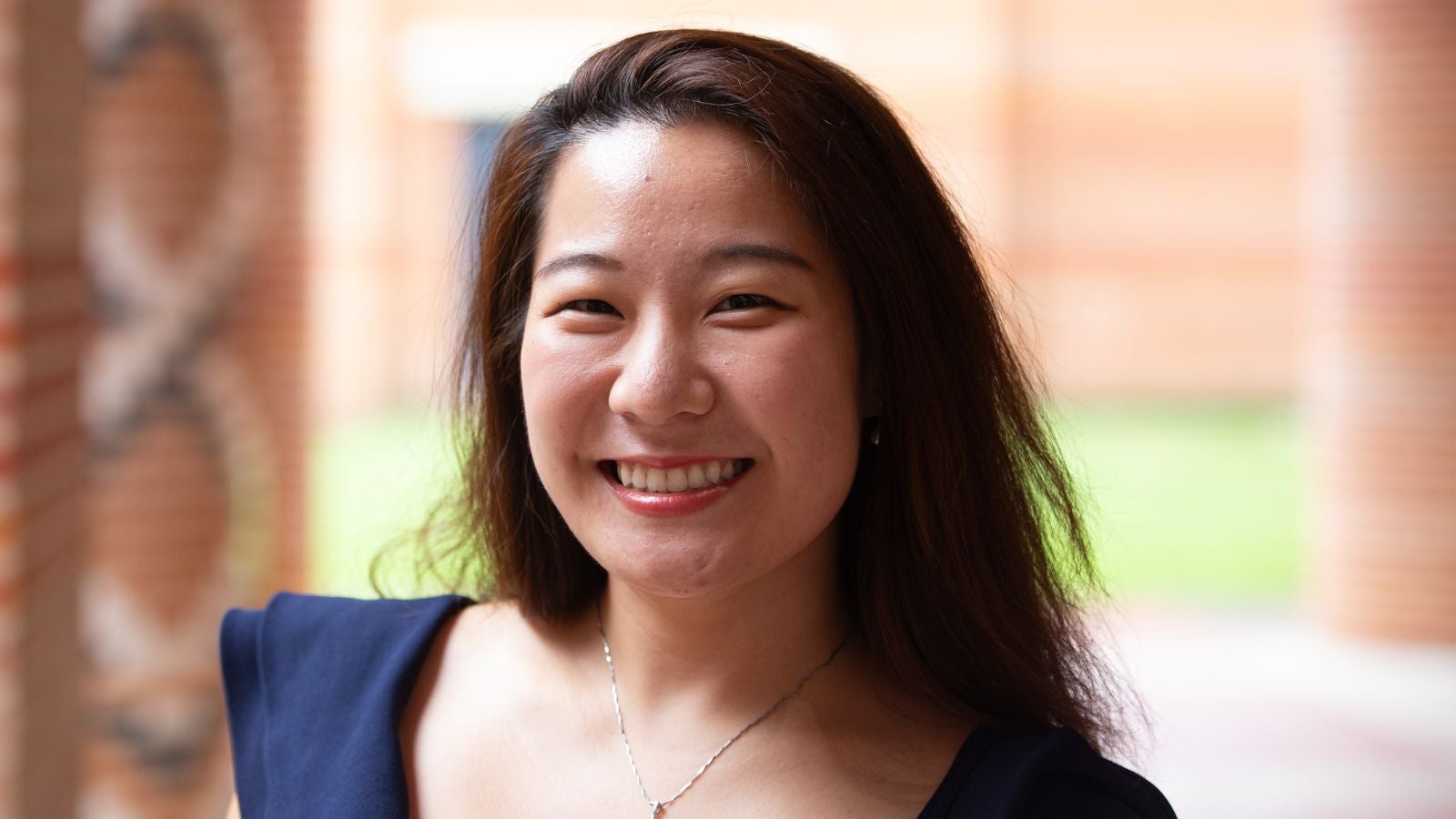CS PhD candidate Peizhu "Pam" Qian is one of 14 postdocs and graduate students chosen for the George R. Brown School of Engineering’s Future Faculty Fellows (FFF) program. The 2024-25 FFF cohort, which includes fellows from each of Rice’s nine engineering departments, will take part in workshops, panel discussions, one-on-one consultations, mock interviews, and networking events tailored to prepare them for a tenure-track academic career.
It’s the perfect fit for Qian, who never doubted her career path lay in academia. “I have always known that I wanted to be a professor,” she says. “From a young age, I witnessed my grandma, an esteemed English professor who taught for over 50 years, make an impact on her students’ lives. I realized that being a professor is not about one’s own success, but the lives you will touch and the community around you.”
Qian researches explainable artificial intelligence, human-robot interaction and intelligent tutoring systems for nursing education. She received a B.S. in computer science and mathematics from Simmons University in Boston, whose undergraduate program is women-focused. “Working in an all-woman environment and having female professors and leaders had been the norm for me,” she says. Then she arrived at Rice and was the only woman in her robotics class (“an experience that many female students at Rice share,” she explains). The contrast made an impact.
“As a future faculty member, I am committed to addressing the underrepresentation of women in STEM fields,” Qian says. “As a leader in the scientific community, I understand the importance of diversity and representation and am devoted to creating an inclusive community.”
Qian appreciates the valuable resources and opportunities the FFF program provides in helping her reach her goals. “Being part of the FFF Level 3 program means I am a step closer to fulfilling my childhood dream,” says Qian, who looks forward to “learning from the experienced faculty in the FFF program” and strengthening how she presents her academic achievements and research potential. In addition, “I would love to polish my job talk and receive coaching on interviews,” she says.
“Through past events offered by the FFF, I learned many valuable skills such as putting together a poster and balancing technical and non-technical content during my presentations, and professional communication skills such as a solid handshake. I am confident that the FFF program will assist its fellows in achieving their goals,” she adds.
Community and connection are central to Qian’s research and philosophy. “Building community is part of who I am, and an important component of my research has been to bring my work out of the lab to the world,” she says. “I want my work to benefit society and contribute to the advancement of science and humanity.”
She sees these qualities reflected in the FFF program.
“I believe that many of the problems our society faces today, such as inequality in education resources and climate change, are both a science problem and a human problem. Incorporating humanitarian considerations when developing new technologies will lead to faster and better solutions,” Qian explains. “I am eager to join the FFF community, where researchers share the same passion and ambition.”
Learn more about the 2024-25 FFF cohort.

